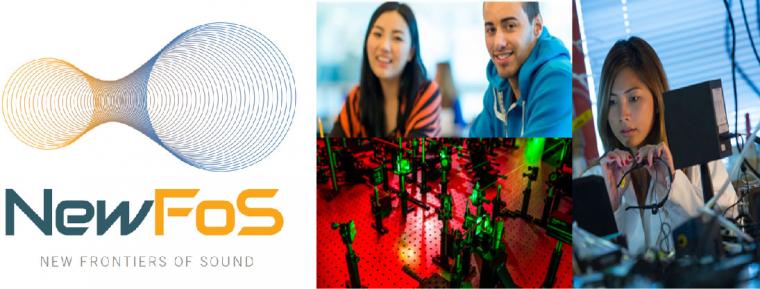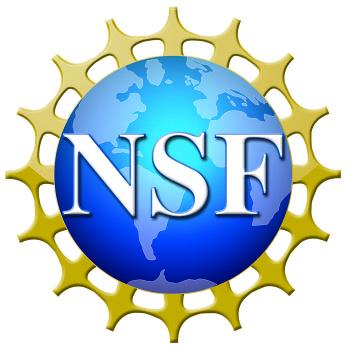NSF Research Experiences for Undergraduates (REM)
New Frontiers of Sound: Acoustic waves research for next-generation information processing
NewFOSheader_better pixels.jpg

Be at the cutting edge of unraveling how researching sound waves will lead to future innovations in ultrasonic therapies and telecommunication!
FOS Objectives
This four-year study focuses on manipulating how sound waves behave. Ultimately the work on phononics - the science of sound - could result in a vast array of products with peculiar features that could improve noise abatement, ultrasonic imaging, and information processing technologies. The goal of the project's REM 2020-2021 program is to invite undergraduate students to learn more about this emerging field by participating in meaningful research tied to the behavior of sound waves. Due to COVID-19 we have designed a program that is online during summer with opportunities for face-to-face work if National and State Directives permit. During the semesters, it is our intention for in-person activities to take place. The research and education team is committed to creating a REM experience that is inclusive and values all students thus nurturing successful researchers at the UA and UCSD. Read more about NewFOS.
-
Development of a finite element (COMSOL) spatiotemporal material property modulation capability and comparison with discrete element model analysis techniques: This project involves the development and implementation of COMSOL simulation tools to investigate the application of heat to create spatio-temporal modulation of elastic properties in materials thin films. The spatio-temporal modulation breaks the symmetry in the way elastic waves propagate leading to the remarkable property of non-reciprocal propagation or one-way propagation.
-
Simulation of non-reciprocal transverse wave propagation in a macroscopic granular chain leveraging spatiotemporal modulation via a nonlinear longitudinal pilot wave: this projects involves the development and implementation of computer simulation methods to model the propagation of transverse elastic waves in chains composed of granular materials. The chain is also supporting the propagation of a longitudinal wave which through nonlinear coupling between the granules leads to a spatio-temporal modulation of the chain properties. This spatio-temporal modulation effects the directionality in the propagation of the transverse waves.
-
Development of a Finite Element (COMSOL) model of acoustic metasurfaces exhibiting non-reciprocal propagation of acoustic waves: This projects involves the development and implementation of a COMSOL simulation method to investigate the acoustic properties of acoustic metasurface. The two-dimensional metasurfaces are composed of regular arrays of resonating pilars. Patterning of the array of pilars is used to break symmetry in the way surface acoustic waves propagate leading to exceptional propagative properties such as one-way propagation as well as immunity of acoustic wave to scattering.
-
June 15 - August 7, 2020: 8 weeks summer REU window
-
Sept 2020-May 2021: 5 hours/week, Research continues, work on professional presentations, get career readiness training, and mentoring continues from both UCSD and UA team. Sign up for a 1 unit seminar course both semesters.
- Feb-April 2021: Attend two professional conferences (all expenses covered)
- 8-week summer research experience
- Debriefs with education team June- May (UA campus location)
- Weekly mentoring sessions during summer
- Weekly mentoring sessions via 1 unit seminar course (Aug-May)
- Spring semester professional conference–Wash. DC
- Spring semester technical conference - TBD
- $7,000.00 stipend for summer REU
- $1000 stipend – Fall 2020
- $1000 stipend – Spring 2021
- Paid Trip to Washington D.C.
- Paid Trip to TDB Technical Conference
- Grad school/internship prep sessions
- 1st generation UA students
- Rising juniors and seniors
- Preferred: Material Science Engineering and Chemical Engineering majors
- Application with 2 essays upload to the application form
- Resume/CV
- Link to Application
APPLICATION DEADLINE: April 30, 2020 - Awardees will be notified by May 6, 2020




